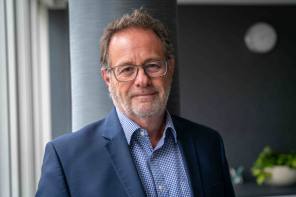

A spate of advisers due to retire soon could boost the robo-advice sector unless the industry plugs the advice gap, warns the chief executive of Octopus Investments.
Ruth Handcock says: “There will be quite a number of financial advisers retiring in the coming years. My hypothesis is that there are more people leaving the sector than entering the sector.”
She adds: “You may see a widespread adoption of robo or some version of robo that includes some financial guidance.”
But she stresses that, while robo-advice will fill the gap for “self-directed people”, there will always be clients with more complex needs.
“My personal opinion is that financial advice is as much about emotion as calculation.”
She says that, despite the robo-advice sector attracting £1.4bn of investment in recent years, customers have not really embraced it.
Octopus Investments has said a report it is due to publish will reveal several thousand advisers are set to retire in the next five years.
The Heath Report Three published in January this year revealed that 7,000 advisers could retire in the next five years.
Ms Handcock says: “There are about 25,000 independent financial advisers. You do not see many people coming into the industry as [are needed] to be able to fill that gap, so the current firms need to become more efficient or you need to find a way of getting people to the sector.”
Or else robo-advice will need to become more common, she says.
Technology investment
Ms Handcock who took over as chief executive in February this year joined from Tandem Bank, a challenger bank.
“Technology is an area we have particularly invested in over the last few years. We make sure we are learning from the fintech community in London and building interesting products and services that help financial advisers deliver better products,” she says.
Most of the retail products built by the company are sold through the 4,000 financial advisers the firms work with.
Ms Handcock runs the company’s retail team, which creates and delivers financial products via financial advisers to end investors.
She joined because she wanted to be somewhere where she felt like she could“still make change happen quickly anddisrupt things”.
Ms Handcock says that much of her job at Tandem revolved around using technology alone to close that advice gap.
Her five-year plan at Octopus Investments is also intended to solve the advice gap in the market using technology.
“Unless you are building best in class technology then you are not going to win in the long term.
She confirms: “My five-year plan revolves around how we can use technology to build outcomes for customers in a way that is learning from the fintechs rather than traditional bits of the financial advice industry, which have traditionally struggled to keep up with technology.”
Ms Handcock adds that the main challenge in her role as chief executive is “figuring out how to find more hours in the day”.
She asks: “How do we solve more and more problems for our financial adviser customers?”
Bespoke products
She explains that most of Octopus Investments’ business model revolves around creating specific, bespoke products that solve distinct customer needs, with venture capital trusts forming a main part of business.
The company has built two new products based around technology. One is a peer-to-peer platform called Octopus Choice that allows a customer to invest in a diversified portfolio of property investments; the other, Octopus Cash, allows customers to take a cash deposit and diversify it across retail banks.
She adds: “For example, if you wanted to invest more than the Financial Services Compensation Scheme limit of £85,000, we will allow you to do that through Octopus Cash.”
Working in financial services has been only a small part of Ms Handcock’s career.
Before joining Tandem, Ms Handcock was a finance director for Bacardi.
She took a stint abroad to work for a charity in Sierra Leone to help the government attract foreign investment following years of a civil war.
She thinks the best way for the financial advice industry to improve would be to leverage intergenerational planning.
“Most advisers I speak to are not looking at taking huge amounts of new clients. How do they take advantage of intergenerational planning?”
She adds: “Many advisers do not work with their clients’ beneficiaries.”
Only 20 per cent of beneficiaries say they would use a financial adviser if they received an inheritance and advisers need to build relationships with their clients’ beneficiaries for this to change, she adds.
Saloni Sardana is features writer at FTAdviser and Financial Adviser



